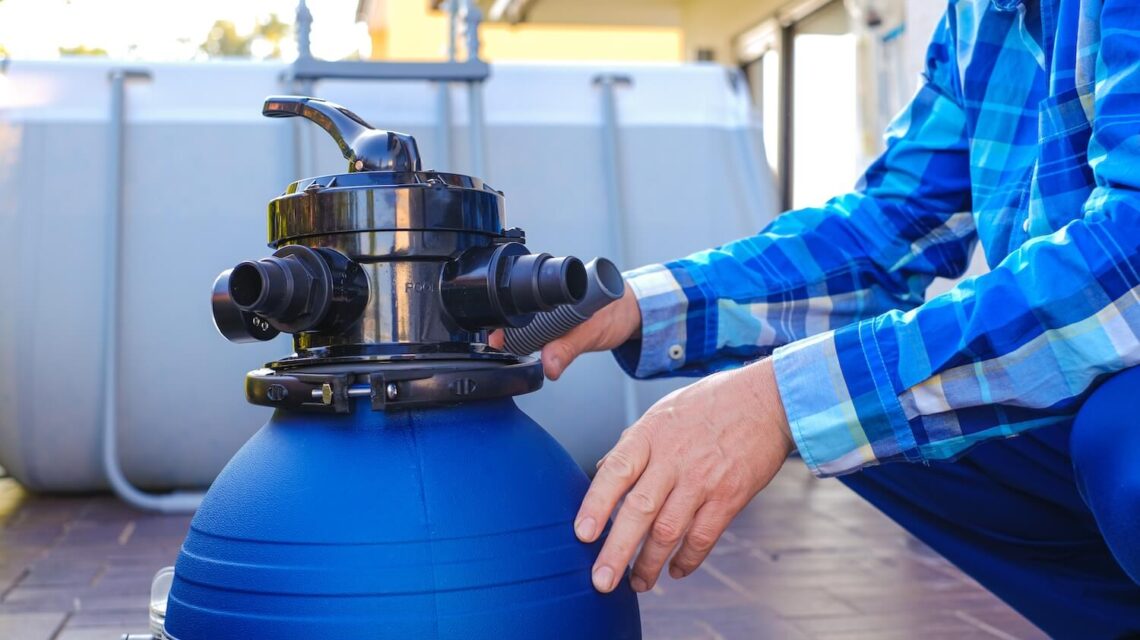Installing pool equipment can be a thrilling yet daunting task for homeowners. Whether you’re a seasoned DIY enthusiast or considering the convenience of professional services, making the right choice is crucial for the longevity and functionality of your pool. This article aims to explore the pros and cons of DIY and professional pool equipment installation, providing insights to help you make an informed decision.
Understanding Pool Equipment Installation
Pool equipment installation is a critical step in ensuring your pool operates efficiently and remains a source of enjoyment. This process involves setting up various essential components, including pumps, filters, heaters, chlorinators, and automated cleaning systems. Each piece of equipment plays a crucial role in maintaining water quality, ensuring safety, and extending the lifespan of your pool.
Pumps are the heart of your pool’s circulation system, moving water through the filtration and heating systems, while filters remove debris and contaminants, keeping the water clear and safe. Heaters regulate the water temperature, allowing you to enjoy your pool comfortably year-round. Chlorinators and other chemical feeders ensure the water remains balanced and free from harmful bacteria. Finally, automated cleaning systems reduce the manual effort required to keep your pool clean, making maintenance more manageable.
Proper installation of these components is vital. Incorrect installation can lead to inefficient operation, increased energy costs, and potential safety hazards. Understanding the intricacies of each piece of equipment and how they work together is essential for achieving optimal performance and longevity of your pool system. Whether you decide to take on the installation yourself or hire a professional, recognizing the importance of each component and the role they play in the overall health of your pool is the first step towards a successful installation.
The DIY Approach: Pros and Cons
Pros of DIY Installation
- Cost Savings: One of the primary reasons homeowners opt for DIY installation is to save money. Labor costs can be significant, and doing it yourself can eliminate these expenses.
- Flexibility and Control: When you take on the installation yourself, you have full control over the schedule and can work at your own pace without depending on external contractors.
Cons of DIY Installation
- Complexity and Time-Consuming: Pool equipment installation is often complex and can be time-consuming. It requires a good understanding of plumbing, electrical work, and pool mechanics. Without proper knowledge, the project can become overwhelming.
- Risk of Errors: Mistakes during installation can lead to significant problems. Incorrect installation can cause equipment malfunction, water leaks, or even electrical hazards, which might result in costly repairs.
- Lack of Professional Tools: Professionals have specialized tools and equipment designed for efficient and accurate installation. Lacking these tools can make the DIY process more challenging and less effective.
- Warranty Issues: Many pool equipment manufacturers offer warranties that might become void if the installation is not performed by a certified professional. This could lead to additional costs if issues arise in the future.
The Professional Service Approach: Pros and Cons
Pros of Professional Installation Service
- Expertise and Experience: Professional installers have the necessary expertise and experience to handle all aspects of pool equipment installation. Their knowledge ensures that the job is done correctly and efficiently.
- Time Efficiency: Professionals can complete the installation much faster than a DIY project. Their experience allows them to troubleshoot potential issues swiftly, minimizing downtime.
- Proper Equipment and Tools: Professionals have access to specialized tools and equipment that ensure precise installation. This not only guarantees optimal performance but also extends the lifespan of your pool equipment.
- Safety Assurance: Installing pool equipment involves dealing with electricity and water, a potentially dangerous combination. Professionals adhere to safety standards and regulations, reducing the risk of accidents.
- Warranty Protection: Professional installation often comes with a warranty. If any issues arise post-installation, the company will address them without additional costs, providing peace of mind.
Cons of Professional Installation
- Higher Initial Costs: Hiring professionals can be more expensive upfront due to labor costs. However, this investment can prevent future expenses related to repairs and inefficiencies.
- Less Personal Involvement: For those who enjoy hands-on projects, hiring professionals might mean missing out on the satisfaction of completing the task yourself.
Comparing Costs: DIY vs. Professional
While DIY installation might seem cost-effective initially, it’s essential to consider the potential hidden costs. Mistakes during installation can lead to expensive repairs, and voiding warranties can result in additional expenses. On the other hand, professional installation, though pricier upfront, ensures the job is done correctly, reducing the likelihood of future issues.
The Hidden Costs of DIY Mistakes
While the initial cost savings of DIY installation can be appealing, it’s essential to consider the hidden costs associated with potential repairs mistakes:
- Repair Costs: Incorrect installation can lead to frequent breakdowns and costly repairs. A professional installation minimizes these risks, saving you money in the long run.
- Energy Inefficiency: Improperly installed equipment can consume more energy, leading to higher utility bills. Professionals ensure that all components are optimized for energy efficiency.
- Decreased Lifespan: Poor installation can shorten the lifespan of your equipment, necessitating earlier replacements and additional expenses.
Factors to Consider When Choosing Pool Equipment Installation
- Skill Level: Assess your skills and knowledge in handling plumbing, electrical work, and pool mechanics. If you lack expertise, professional installation is a safer and more reliable option.
- Time Availability: Consider the time you can dedicate to the installation. DIY projects can be time-consuming, and if you have a busy schedule, professional installation might be more convenient.
- Budget: While DIY can save money initially, factor in potential hidden costs. Professional installation, though expensive upfront, might prove cost-effective in the long run due to fewer repairs and maintenance issues.
- Warranty and Support: Check the warranty terms of your pool equipment. Professional installation often includes warranty protection, which can save you from future expenses.
Making the Decision: DIY or Professional?
While the DIY approach can be tempting for its cost savings and personal satisfaction, the complexities and potential risks involved in pool equipment installation often outweigh these benefits. Professional installation, although more expensive initially, provides expertise, efficiency, safety, and warranty protection, ensuring your pool equipment operates optimally for years to come.
The Importance of Professional Parts Calibration
Beyond installation, professional pool services often include the calibration of your pool equipment. Calibration ensures that all components work in harmony, optimizing performance and efficiency. For instance, a properly calibrated pump and filter system can significantly reduce energy consumption, saving you money on utility bills.
Long-Term Maintenance and Parts Support
One of the significant advantages of opting for professional installation is the ongoing support and pool maintenance services they offer. Many companies provide regular pool maintenance packages that include:
- Routine Inspections: Regular check-ups can identify and address potential issues before they become major problems, ensuring your pool equipment remains in top condition.
- Seasonal Opening and Closing: Professionals can handle the complex tasks of opening and closing your pool for the season, ensuring everything is correctly set up and winterized.
- Repairs and Upgrades: Over time, pool equipment may need repairs or upgrades. Professional installers are well-equipped to handle these tasks, ensuring minimal disruption to your pool usage.
Peace of Mind
One of the most significant benefits of hiring professionals is the peace of mind they provide. Knowing that experts have handled your pool equipment installation means you can enjoy your pool without worrying about potential issues. This peace of mind is invaluable, allowing you to relax and fully enjoy your backyard oasis.
Conclusion
Weighing your options for pool equipment installation requires careful consideration of your skills, time, and budget. While the allure of DIY projects is strong, the advantages of professional installation are substantial. Professionals bring expertise, efficiency, and safety to the table, providing peace of mind and long-term benefits. Ultimately, investing in professional installation can save you time, money, and stress, ensuring your pool remains a source of enjoyment rather than frustration.
So, before you dive into the complexities of pool equipment installation, consider the value that professional services bring. With their specialized knowledge and tools, professionals can transform your pool installation experience from a daunting task to a seamless and satisfying process. By choosing professional installation, you’re not just investing in your pool; you’re investing in your peace of mind and the long-term enjoyment of your backyard oasis.




